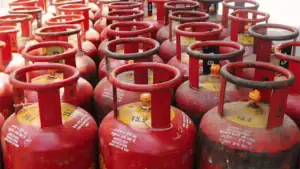Islamabad, Feb 26: The Government of Pakistan is reinforcing its commitment to climate resilience with the launch of Phase-III of the Climate Advocacy and Coordination Resilience Action (CACRA) Project. Speaking at the event, Coordinator to the Prime Minister on Climate Change, Romina Khurshid Alam.
Emphasized the urgent need to integrate climate resilience into national policies. She highlighted the importance of empowering communities, mobilizing resources, and leveraging innovation to strengthen Pakistan’s capacity to combat climate challenges.
Funded by the German Federal Ministry for Economic Cooperation and Development (BMZ), the latest phase of CACRA aims to enhance disaster preparedness and resilience at the grassroots level. Addressing the gathering at the Pakistan Red Crescent Society (PRCS), Romina underscored that climate change is not just an environmental concern but a crisis of survival and justice.
She stressed the need for immediate and unified action, citing Pakistan’s devastating floods, intensifying heatwaves, and prolonged droughts as clear indicators of the escalating climate emergency.
The event brought together key stakeholders, including representatives from the German Red Cross, environmentalists, academics, students, and volunteers. Romina acknowledged PRCS’s critical role in disaster response and resilience-building, recognizing its efforts in equipping vulnerable communities with the tools and knowledge needed to navigate climate challenges. She commended PRCS for ensuring that at-risk populations are not merely recipients of aid but active participants in creating sustainable solutions.
Expressing appreciation for the German Red Cross, she acknowledged its ongoing support in strengthening Pakistan’s disaster risk reduction strategies. She noted that the BMZ-backed CACRA Project has already made significant strides in improving local resilience and institutional capacity, but emphasized that much more needs to be done.
With Pakistan ranked among the top 10 most climate-vulnerable countries, she reiterated the government’s resolve to move beyond crisis management and build a future where communities are well-prepared to face environmental threats.
Romina concluded by calling for expanded community-driven, science-based solutions and stronger policy frameworks aligned with global best practices. She also stressed the need for public-private partnerships to ensure long-term sustainability in climate resilience efforts. Phase-III of the CACRA Project, she affirmed, represents a bold step forward in Pakistan’s climate action journey.









